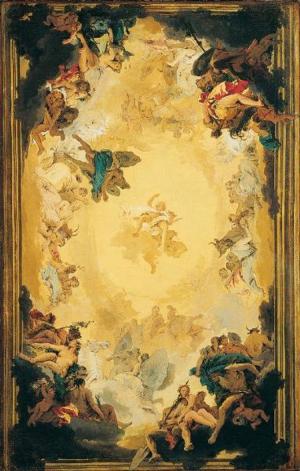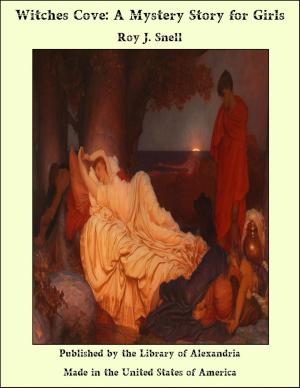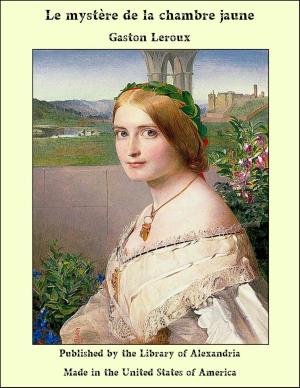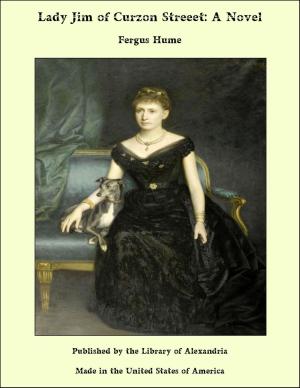Three Heroines of New England Romance: Their True Stories Herein Set Forth by Mrs Harriet Spoffard, Miss Louise Imogen Guiney, and Miss Alice Brown
Nonfiction, Religion & Spirituality, New Age, History, Fiction & Literature| Author: | Alice Brown & Louise Imogen Guiney & Harriet Elizabeth Prescott Spofford | ISBN: | 9781465614506 |
| Publisher: | Library of Alexandria | Publication: | March 8, 2015 |
| Imprint: | Language: | English |
| Author: | Alice Brown & Louise Imogen Guiney & Harriet Elizabeth Prescott Spofford |
| ISBN: | 9781465614506 |
| Publisher: | Library of Alexandria |
| Publication: | March 8, 2015 |
| Imprint: | |
| Language: | English |
Certainly Miles Standish was not of the demigods, if he was of the heroes. No Puritan ascetic he, by nature or belief. One might imagine him some soul that failed to find incarnation among the captains and pirates of the great Elizabeth’s time, the Raleighs and Drakes and Frobishers, and who, coming along a hundred years too late, did his best to repair the mistake. A choleric fellow, who had quarrelled with his kin, and held himself wronged by them of his patrimony; of a quarrelsome race, indeed, that had long divided itself into the Catholic Standishes of Standish and the Protestant Standishes of Duxbury; a soldier who served the Queen in a foreign garrison, and of habits and tastes the more emphasized because he was a little man; supposed never to have been of the same communion as those with whom he cast in his lot,—it is not easy to see the reason of his attraction to the Pilgrims in Holland. Perhaps he chose his wife, Rose, from among them, and so united himself to them; if not that, then possibly she herself may have been inclined to their faith, and have drawn him with her; or it may have been that his doughty spirit could not brook to see oppression, and must needs espouse and champion the side crushed by authority. For the rest, at the age of thirty-five the love of adventure was still an active passion with him. That he was of quick, but not deep affections is plain from the swiftness with which he would fain have consoled himself after the death of Rose, his wife; and, that effort failing, by his sending to England for his wife’s sister Barbara, as it is supposed, and marrying her out of hand. That he was behind the spirit of the movement with which he was connected may be judged by his bringing home and setting up the gory head of his conquered foe; for although he was not alone in that retrograde act, since he only did what he had been ordered to do by the elders, yet the holy John Robinson, the inspirer and conscience of them all, cried out at that, “Oh that he had converted some before he killed any!” Nevertheless, that and other bloody deeds seem to have been thoroughly informed with his own satisfaction in them. His armor, his sword, his inconceivable courage, his rough piety, that “swore a prayer or two,”—all give a flavor of even earlier times to the story of his day, and bring into the life when certain dainties were forbidden, as smacking of Papistry, a goodly flavor of wassail-bowls, and a certain powerful reminiscence of the troops in Flanders.
Certainly Miles Standish was not of the demigods, if he was of the heroes. No Puritan ascetic he, by nature or belief. One might imagine him some soul that failed to find incarnation among the captains and pirates of the great Elizabeth’s time, the Raleighs and Drakes and Frobishers, and who, coming along a hundred years too late, did his best to repair the mistake. A choleric fellow, who had quarrelled with his kin, and held himself wronged by them of his patrimony; of a quarrelsome race, indeed, that had long divided itself into the Catholic Standishes of Standish and the Protestant Standishes of Duxbury; a soldier who served the Queen in a foreign garrison, and of habits and tastes the more emphasized because he was a little man; supposed never to have been of the same communion as those with whom he cast in his lot,—it is not easy to see the reason of his attraction to the Pilgrims in Holland. Perhaps he chose his wife, Rose, from among them, and so united himself to them; if not that, then possibly she herself may have been inclined to their faith, and have drawn him with her; or it may have been that his doughty spirit could not brook to see oppression, and must needs espouse and champion the side crushed by authority. For the rest, at the age of thirty-five the love of adventure was still an active passion with him. That he was of quick, but not deep affections is plain from the swiftness with which he would fain have consoled himself after the death of Rose, his wife; and, that effort failing, by his sending to England for his wife’s sister Barbara, as it is supposed, and marrying her out of hand. That he was behind the spirit of the movement with which he was connected may be judged by his bringing home and setting up the gory head of his conquered foe; for although he was not alone in that retrograde act, since he only did what he had been ordered to do by the elders, yet the holy John Robinson, the inspirer and conscience of them all, cried out at that, “Oh that he had converted some before he killed any!” Nevertheless, that and other bloody deeds seem to have been thoroughly informed with his own satisfaction in them. His armor, his sword, his inconceivable courage, his rough piety, that “swore a prayer or two,”—all give a flavor of even earlier times to the story of his day, and bring into the life when certain dainties were forbidden, as smacking of Papistry, a goodly flavor of wassail-bowls, and a certain powerful reminiscence of the troops in Flanders.















